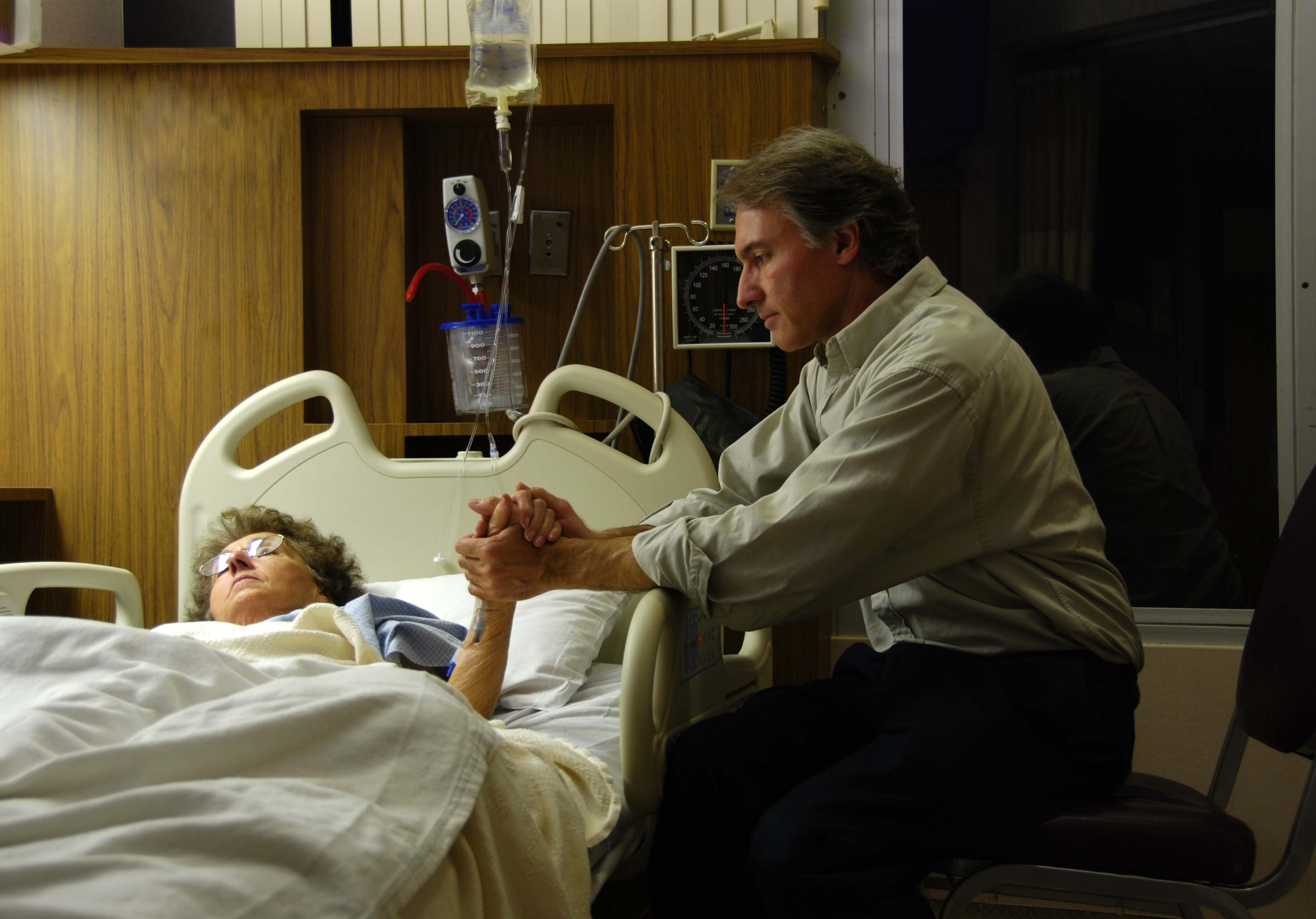In 2015 the bishops of the United States approved “Create in Me a Clean Heart,” a formal pastoral statement addressing the issue of pornography and all those affected. Learn more about the statement or read it for yourself. Pamphlets in the series are also available here.
Henry seemed to have it all–a loving marriage, four young children, and a solid middle-management position with a local financial corporation. He and his family lived in a good suburban neighborhood and were active in their local parish, where Henry was involved in the music ministry. At 35, he was poised for a promotion to a more lucrative upper-management post.
He always worked long hours, both at the office and at home, but in recent months he had shown signs of wearing down. To his wife and children, he seemed distant, irritable and gloomy, and he was spending longer and longer hours at the computer. He often missed out on family outings, saying he needed to work. Even his co-workers noticed a change for the worse in his mood, efficiency and productivity. He simply wasn’t himself anymore.
Everything came crashing down late one evening when Henry’s 11-year-old daughter, Hannah, walked in on him as he watched an Internet video of men and women engaging in sexual acts. Horrified, Hannah ran and told her mother, and this now-disillusioned family suddenly had some very serious issues to face.
Tragically, Henry’s situation is not unique. While pornography has been around for centuries, the problem of addiction to pornography has increased dramatically in recent years largely due to its vast presence on the Internet.
Dr. Patrick Carnes, who in 1983 first advanced the idea that a person could become addicted to sex, calls the addiction to Internet pornography “the crack cocaine of sexual addiction.” Like crack, it doesn’t take long for an Internet porn user to become hooked, often a matter of just a few weeks. And like crack, habitual viewing of online porn creates an intense cycle of addiction that is extremely difficult to break without expert assistance.
These are some of the devastating effects of Internet pornography upon marriage, the family and the individual:
- It destroys the trust and intimacy within the husband-wife relationship and often leads to the end of the marriage itself.
- It creates obstacles to real communication and personal interaction with one’s spouse and with others.
- It stimulates within the porn addict a distorted view of sexuality that can lead to the desire for riskier, perverse and even criminal sexual behaviors.
- It draws focus away from one’s family life and relationship with God and sets a destructive example for one’s children.
Epidemic proportions
Porn addiction is an epidemic that has been grown in the Internet age. Some estimates put porn use among churchgoing men at 50 percent, a figure that differs little from use among the adult male population at large.
For Robert Peters, president of Morality in Media, the Internet is the primary factor in the increase in porn use.
“Particularly with the Internet, we usually talk about the three A’s: accessibility, affordability, and anonymity. Sometimes I add a fourth A, addiction,” says Peters. “Pornography is addictive in any medium, but when you’ve got this smorgasbord at your fingertips, and you’re clever enough to keep anyone from finding out about it, it’s an awful lot easier for people to get into pornography.”
Those factors also make it much easier for children and teenagers to access pornography, according to Dr. Richard Fitzgibbons, director of the Institute for Marital Healing near Philadelphia.
“Unfortunately, kids in elementary and high schools can develop a really bad problem with porn at a very early age,” Fitzgibbons says. “They go to school and talk about porn sites with their friends. If it were not for the Internet, these kids would not be into this fantasy world.”
Statistics bear this out: According to studies, 90 percent of children ages 8 through 16 have viewed pornography online, and children 12 through 17 are the largest single group of users of Internet porn.
How a porn addiction develops
An Internet porn habit may begin out of curiosity, by clicking on a racy advertisement or e-mail or happening upon a site by accident. A man may continue to explore online porn because he feels it fills a real or perceived need, explains Mark Houck, co-founder and president of The King’s Men, a Catholic apostolate based in the Philadelphia area.
“Perhaps he is stressed at work, or perhaps he is bored with his life and looking for some excitement,” says Houck. “Whatever the case is, it begins with his false perception that the women and images he will see on the Internet will satisfy his needs. The truth of the matter is that they will never satisfy his needs, and he will be left in a worse situation than he was before. . . . He is using pornography as a substitute for real human relationships, and he is suffering.”
Factors that may lead to the development of a porn-viewing habit include stress, marital conflict, profound self-centeredness, or the “pleasure principle,” a Freudian term for the drive to avoid pain and seek immediate gratification.
Sometimes there is a contributing cause in what Fitzgibbons calls “marital loneliness.”
“The couple has drifted apart in the home,” Fitzgibbons says. “They love each other, but they’re not present to each other, particularly in the evening. They’re in different rooms, even different floors of the house. That’s the worst mistake.”
Other emotional and character conflicts that can lead to addiction include poor body image, an excessive sense of responsibility, a lack of balance in life, mistrust of others, social isolation, lack of acceptance by peers, and repressed anger. Often these traits are rooted in negative formative experiences of childhood. Having had a parent who viewed or was addicted to pornography is another major factor that increases vulnerability to porn addiction.
Whatever the root causes, a man’s attraction to pornographic images can bring about a mental “high” that provides a brief escape from whatever stress or unhappiness he is experiencing in his daily life.
Gradually, the porn addiction escalates as he builds a tolerance to each level of his online experiences. He may seek out more explicit or perverse pornographic. He may be drawn to adult chat rooms where Internet users can meet online.
For some porn-addicted men, the obsession can get to the point that online images and encounters no longer satisfy their desires. They seek to act out their pornographic fantasies, for example, by having an affair, seeking casual sexual encounters, picking up prostitutes, patronizing “gentlemen’s clubs,” committing acts of voyeurism or even sexual abuse of another person.
Seeking help
Eventually, however, the anonymity ends when the secret gets out. As the addiction grows, his cognitive abilities are impaired and he takes more risks. His increasingly risky behavior and his efforts to conceal his problem raise questions among family and co-workers. His wife or child walks in on him in the act of viewing porn, or discovers his secret by chance when he leaves open a web page, a photo or incriminating e-mail onscreen, or fails to erase his browser history revealing the porn addresses he has visited.
The increase in Internet pornography addiction has brought with it an increase in the number of men and couples seeking help to overcome the problem, although it is not usually the man’s idea to seek help, says Fitzgibbons.
“Sometimes it’s the men, but more often the wives become aware that their husbands have this problem,” he says. Most wives consider their husbands’ porn use as a betrayal every bit as deep and damaging as if they had committed adultery.
“The negative impact on marriages is quite significant,” says Fitzgibbons. “I’ve had many women say that this is no different to them than having an affair. A number tell their spouses, ‘Unless you address this and work on this, this marriage will not survive, because I experience it as total betrayal.’ They’ll say, ‘When you are doing that, you’re not thinking of me. You’re involved in adultery of the heart.’ And there’s no response to that one.”
Arduous road to recovery
Most therapists today agree that obsessive viewing of Internet porn qualifies as a behavioral addiction. When a man views the images, the accompanying gratification tends to neurochemically “hard-wire” his brain and burn the images permanently in his memory in what some doctors call an erototoxin effect.
As Houck of The King’s Men explains in layman’s terms, “Overcoming a porn addiction is harder than overcoming a heroin addiction. When rehabbing from a drug addiction, there is a period of detoxification from the drug. With porn, you can detox, but the images never leave your body. Scary, isn’t it?”
Because porn addiction compulsion has so many of the same causes and effects as adultery, the treatment and counseling are pretty much the same, says Dr. Fitzgibbons.
“In adultery, the wife will say, ‘I want all the details.’ So you have to be totally uncovered, transparent, and honest about all the mistakes you’ve made, when, where and why,” he says. “And then there has to be a deep sense of sorrow, a repentance. So it is exactly the same as treating adultery in that there has to be a real commitment to identify the problems and address them.”
Rebuilding marital trust is a major undertaking in itself. The man must patiently discuss all that went on as deeply and as often as she requests. He must provide her with more attention and become more focused on their marital friendship. With time, if he can be chaste and accountable, his wife’s trust in him may grow again.
Part of the recovery process as well as a preventive measure is for husband and wife to practice good interpersonal communication and to spend quality time together – in other words, to build and maintain a strong marital friendship.
“Marital friendship is based on talking, communicating, being present to the other–not just watching television, but taking time to discuss matters or to do things together, even pray together,” Fitzgibbons says.
While treatment clinics and support groups can be helpful, Fitzgibbons emphasizes the need for a strong spiritual component if a man is to address and overcome his addiction effectively.
“Where there is a spiritual component to the recovery, we have seen great success,” he says. “The Lord doesn’t want this darkness to interfere with the great sacrament of marriage.”
Prayer, frequent reception of the sacraments, Bible study and support groups can be very helpful in the recovery process.
For Your Marriage Resources:
Research on effects of pornography:
- The National Center on Sexual Exploitation runs a website called Porn Harms: Research, which includes an up-to-date list of major studies and scientific information about the effects of pornography.
- The Family Research Council released a study in December 2009 on pornography’s effects on marriages, children, individuals and communities. See the Executive Summary and full report.
Catholic Church teaching about chastity and pornography:
For Further Reading (links to book reviews on For Your Marriage):




